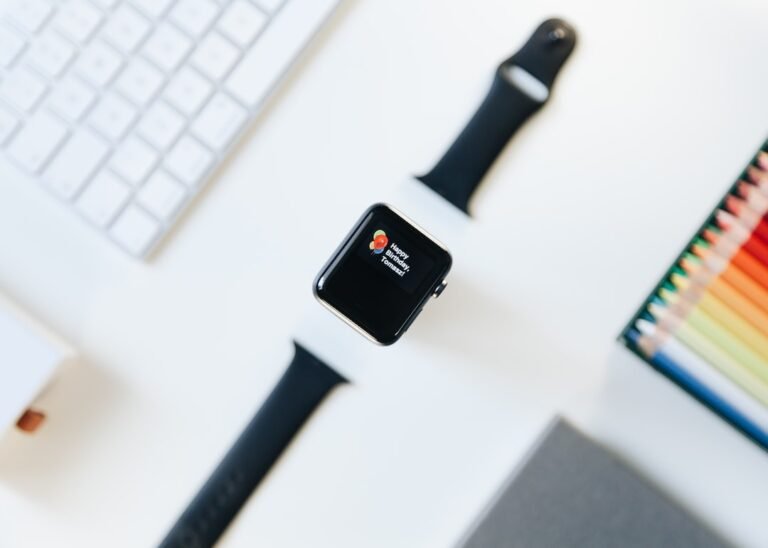Introduction
Have you ever stopped to think about the security of your mobile device when connecting to Wi-Fi networks? In today’s digital age, where we rely heavily on our smartphones and tablets for various activities, it’s essential to ensure that our devices are protected from potential threats. In this article, we will explore the topic of mobile device security on Wi-Fi networks and discuss practical steps you can take to enhance your device’s security. So, let’s dive in and learn how to keep our devices safe in the ever-connected world we live in.
Understanding the Importance of Mobile Device Security on Wi-Fi Networks
Imagine this scenario: You’re sitting in a coffee shop, sipping your favorite latte, and you decide to connect your phone to the cafe’s Wi-Fi network to save on your data plan. It seems harmless, right? However, connecting to public Wi-Fi networks can expose your mobile devices to security risks.
When your device connects to a Wi-Fi network, it sends and receives data over the airwaves. Hackers can intercept this data, potentially accessing your personal information, such as passwords, emails, and even financial details. To make matters worse, they can use this information for malicious purposes, endangering your privacy and financial security.
That’s why it’s crucial to enhance the security of your mobile devices when connecting to Wi-Fi networks, especially public networks. By taking proactive measures, you can mitigate the risks and protect your sensitive data from falling into the wrong hands.
Steps to Enhance Mobile Device Security on Wi-Fi Networks
Use Strong and Unique Passwords
One of the simplest yet most effective ways to protect your mobile device is by using strong and unique passwords for your Wi-Fi networks. Avoid default or common passwords that are easily guessable. Instead, create complex passwords that include a combination of uppercase and lowercase letters, numbers, and symbols. Additionally, ensure that you use different passwords for different networks or devices to prevent unauthorized access.
Enable Two-Factor Authentication
Two-factor authentication adds an extra layer of security to your accounts by requiring a second verification step. When enabled, you’ll need to provide a verification code, typically sent to your mobile device, in addition to your password. This feature significantly reduces the chances of unauthorized access to your accounts.
Keep Your Software Updated
Regularly updating your mobile device’s operating system and applications is vital for maintaining security. Updates often include fixes for security vulnerabilities identified by manufacturers or developers. By keeping your software up to date, you ensure that you have the latest security patches and protections against emerging threats.
Utilize a Virtual Private Network (VPN)
A VPN is an excellent tool for enhancing the security of your mobile device on Wi-Fi networks. It creates an encrypted connection between your device and the internet, preventing anyone from intercepting or accessing your data. When connected to a VPN, your online activities become virtually untraceable, keeping your sensitive information safe from prying eyes.
Be Cautious of Unsecured Wi-Fi Networks
When connecting to Wi-Fi networks, especially in public places, it’s crucial to be cautious. Avoid connecting to unsecured networks that do not require a password or encryption. These networks are highly vulnerable to cyber attacks and can put your device’s security at risk. Instead, opt for secured networks with password protection, preferably those offered by trusted establishments or your own personal network.
Disable Auto-Connect and Wi-Fi Sharing
Auto-connect features on your mobile device may automatically connect to Wi-Fi networks you’ve previously accessed. While this feature can be convenient, it also poses security risks, particularly if the network is unsecured. It’s advisable to disable auto-connect options and manually connect to trusted networks. Similarly, avoid sharing your Wi-Fi connection with unknown devices, as this could potentially compromise your security.
Use HTTPS for Web Browsing
When browsing the internet on your mobile device, make sure to visit websites that use HTTPS. This secure protocol encrypts the data transmitted between your device and the website, making it difficult for attackers to intercept or tamper with the data. Look for the lock symbol in the web address bar to ensure you’re accessing a secure connection.
Conclusion
As our reliance on mobile devices and Wi-Fi networks continues to grow, it’s crucial to prioritize the security of our devices. By implementing the steps mentioned above, such as using strong passwords, enabling two-factor authentication, and utilizing a VPN, you can significantly enhance the security of your mobile devices on Wi-Fi networks. Remember to exercise caution when connecting to public networks and keep your devices updated with the latest software patches. By taking proactive measures, you can enjoy the convenience of Wi-Fi networks while keeping your personal and sensitive information safe from unauthorized access.
FAQ
Q: How can I set up my home network for better security?
A: To enhance security on your home network, consider updating your default Wi-Fi router password, enabling network encryption (WPA2), disabling remote administration, and regularly updating your router’s firmware. For more comprehensive guidance, check out our guide on home network setup.
Q: What should I do if I encounter issues with my Wi-Fi router?
A: If you experience problems with your Wi-Fi router, try troubleshooting the common issues first. This may involve power cycling the router, checking connectivity settings, or updating the firmware. For detailed troubleshooting steps, refer to our comprehensive router troubleshooting guide.
Q: What are some other recommended resources to learn more about mobile device security and Wi-Fi networks?
A: Here are a few additional resources to further explore mobile device security and Wi-Fi networks:
- Wireless Router Security: Enhancing Protection in Your Home Network
- Gaming Router Buying Guide: Optimize Your Online Gaming Experience
- Mesh Wi-Fi Systems: Revolutionizing Home Network Coverage and Performance
- 5G Routers for High-Speed Internet Connectivity: Unleash the Power of Next-Generation Networks
- Parental Control Routers: Empowering Responsible Internet Usage
- Open-Source Router Firmware: The Freedom to Customize and Secure Your Network
- VPN Router Security: Protecting Your Network and Privacy
- Smart Home Integration: Seamlessly Connect Your Devices for an Enhanced Living Experience
- Fiber Internet Routers: Unleash the Full Potential of Your Ultra-Fast Connection
Further Reading
Please find below a list of external resources for additional information on mobile device security on Wi-Fi networks:
| Website | Description |
|---|---|
| www.wired.com | Wired is a reputable technology news website with informative articles on device security and security best practices. |
| www.norton.com | Norton is a well-known cybersecurity company that offers valuable insights and tips on securing mobile devices on Wi-Fi networks. |




